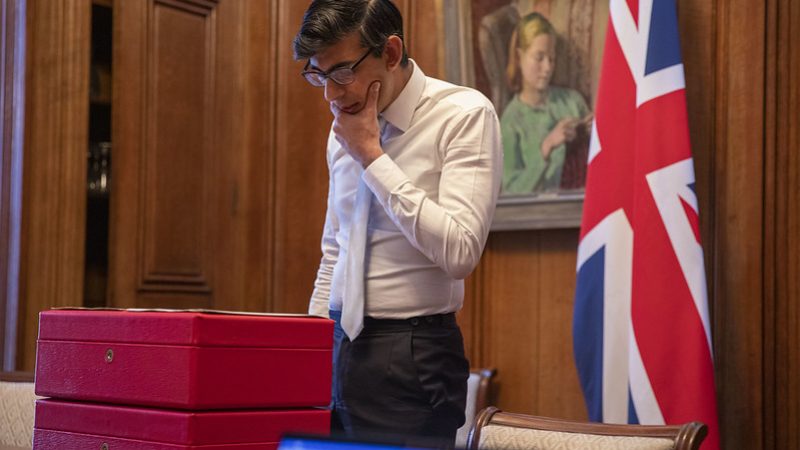
The big headline today is a key announcement brought forward from Wednesday’s Budget: another £5.9bn to help clear the NHS backlog. On top of the £36bn over three years pledged in September, this is capital spending intended for diagnostic services, buying equipment and improving IT, to increase efficiency and address the fact over five million people are waiting for NHS hospital treatment. In reality, this is a catch-up plan not only made necessary by Covid but also years of Tory austerity. It is an acknowledgement, too, that the health and social care levy has little chance of fulfilling the second part of its name without more serious investment in the NHS. And the latest commitment fails to tackle the crucial matter of staff shortages.
Labour has accused Rishi Sunak of preparing to unveil a “smoke and mirrors” budget, highlighting that the early announcements ahead of Wednesday’s offering are dominated by even earlier spending promises – the Chancellor admitted, for example, that most of the money for transport outside London has already been put forward. This is a government that would “rather re-announce plans than get work done”, Rachel Reeves said. The opposition party’s key line now is an accusation that the Tories are taking a “high tax, low delivery” approach, which touches on the fears of Conservative MPs who want Sunak to prove he really is a fiscal Thatcherite despite the Covid measures taken under his watch.
Over the weekend, Labour came out in favour of implementing ‘plan B’, which means mask-wearing, working from home and vaccine passports for mass events. Jonathan Ashworth had already made this move last week, yet the leadership was not making the same demand. Now it is backing the call, but Labour would still rather emphasise the failure to enact ‘plan A’ properly, i.e. stress that the booster programme is too slow, than focus on moving up to another level of restrictions. Keir Starmer is also drawing attention to vaccine misinformation today, saying exclusion orders should be used to stop anti-vax protesters campaigning outside schools.
If you missed it, LabourList revealed an important bit of internal Labour news. The Old Bexley and Sidcup by-election is the first test of whether the party’s candidate selection processes for short-notice contests have changed since conference in September. The seat has always been Tory, so this by-election is not a priority for Labour, but the method used for picking the candidate will set a precedent. We can reveal that Labour plans to use a shortlisting panel made up of three national executive committee (NEC) members, one regional executive committee (REC) member and one local party representative.
Why is this worth noting? The only rule change passed at conference that was proposed by a local party, rather than the NEC, aimed to ensure that local members control selections for by-elections and snap general elections. The rulebook now states that shortlisting panels in these cases should comprise three locals, one REC member and one NEC. But the party says the amendment was “inexpertly drafted” and it will not be implemented: instead, a compromise has been agreed whereby locals have some representation but the NEC continues to dominate the stage of the process where candidates are narrowed down. See our full story here.
Sign up to LabourList’s morning email for everything Labour, every weekday morning.



More from LabourList
Government abandons plans to delay 30 local elections in England
‘The cost of living crisis is still Britain’s defining political challenge’
‘Nurses are finally getting the recognition they deserve’